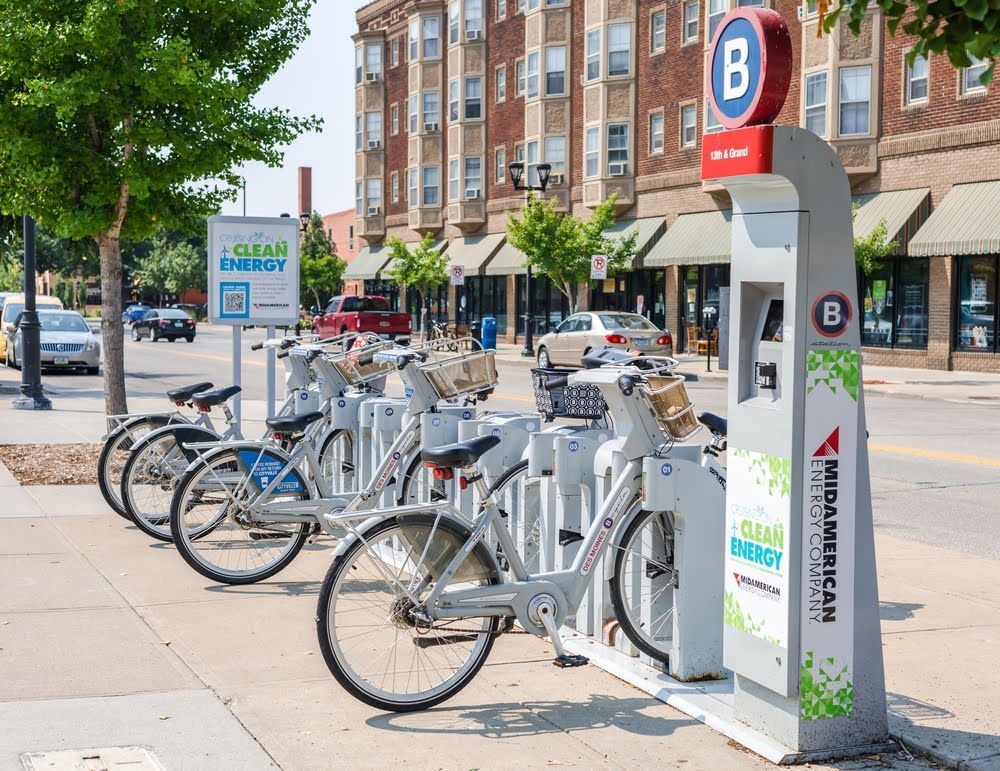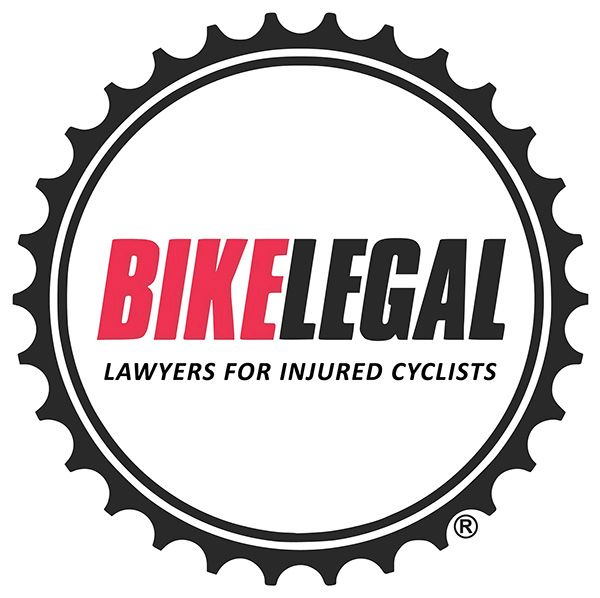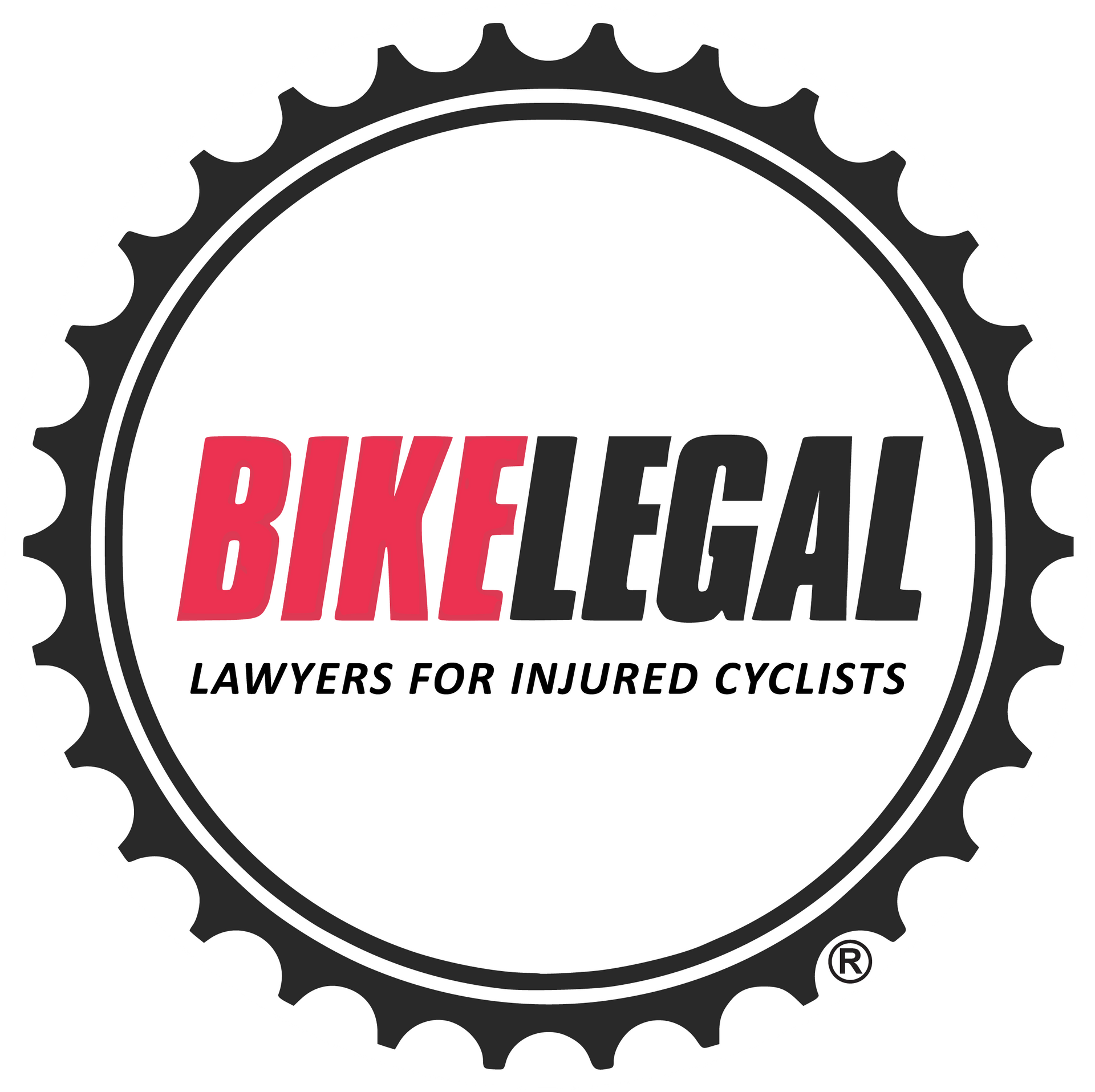Iowa E-Bike Laws and Legislation 2025: Everything You Need to Know
Follow us on
social media!
Electric bikes (e-bikes) are gaining momentum across Iowa, offering a fun, efficient, and eco-friendly way to commute, explore trails, or simply enjoy the open road. Whether you’re a recreational rider or using an e-bike for transportation, it’s essential to understand the current rules, especially with recent updates in Iowa E-Bike Legislation 2025.
Iowa’s e-bike laws are designed to balance access and safety. With clear definitions, a standardized three-class system, and no licensing or registration requirements for most riders, Iowa remains one of the more e-bike-friendly states in the U.S. This guide breaks down the latest regulations, including classifications, age limits, equipment requirements, and where you can legally ride.
Electric Bicycle (Ebike) Definition in Iowa
Under Iowa Motorized bicycle laws, MOTOR VEHICLES AND LAW OF THE ROAD, §321.235B, a low-speed electric bicycle is defined as a bicycle that meets the following criteria:
- Has
fully operable pedals
- Is equipped with a
saddle for the rider
- Uses an electric motor with a maximum output of 750 watts (1 horsepower)
To qualify as a legal e-bike in Iowa, the motor must disengage when any of the following occur:
- The rider stops pedaling
- The brakes are applied
- The motor is manually disengaged
Iowa ebike laws ensure that e-bikes function similarly to traditional bicycles, rather than as continuously powered motor vehicles. Iowa’s definition is aligned with federal consumer product standards. It is reinforced by Iowa Code §321.235B and Senate File 490 (2025), which clarifies that exceeding 750 watts may reclassify the bike as a motor vehicle, triggering licensing, registration, and insurance requirements.
E-Bike Classifications in Iowa

According to Iowa Chapter 125 Regulation of Electric Bicycles, the state uses a three-class system to categorize e-bikes based on how they operate and their top assisted speeds. These classifications help determine where e-bikes can be ridden and who is allowed to operate them.
Class 1
- Operation: Pedal-assist only (motor provides assistance only while pedaling)
- Max Assisted Speed: 20 mph
- Where You Can Ride: Generally allowed on bike lanes, multi-use paths, and public roads, unless restricted by local ordinance.
Class 2
- Operation: Throttle-assisted (can be powered solely by the motor without pedaling) or pedal-assist
- Max Assisted Speed: 20 mph
- Where You Can Ride: Similar access to Class 1 e-bikes, but some trails or cities may restrict throttle use
Class 3
- Operation: Pedal-assist only
- Max Assisted Speed: 28 mph
- Equipment Requirement: Must be equipped with a speedometer
- E-bike age limit Iowa: Riders must be at least 16 years old to operate (passengers under 16 are permitted)
- Where You Can Ride: Allowed on roads and bike lanes; may be restricted from some non-motorized trails or paths due to higher speed.
The manufacturer must label all e-bikes with the following information:
- Class number
- Top assisted speed
- Motor wattage
Labels must be in Arial font, minimum 9-point, and permanently affixed to the frame.
Age and Helmet Requirements for Ebike Riders in Iowa
Iowa Ebike Age Restrictions
Iowa e bike laws set specific age requirements based on e-bike classification:
- Class 1 & Class 2:
There is no minimum age set by state law to operate these e-bikes. However, adult supervision is strongly encouraged for younger riders, and some cities or park systems may enforce local age restrictions. - Class 3:
Riders must be at least 16 years old to operate a Class 3 e-bike.
Children under 16 may ride as passengers only, provided the bike is equipped with a proper seat (per Iowa Code §321.234, subsection 4).
Helmet law for e-bikes in Iowa
- Statewide Requirement: Iowa
does not have a statewide helmet law for e-bike riders, regardless of age.
- Local and Safety Recommendations:
- Helmets are
strongly recommended, especially for Class 3 riders, due to higher speeds.
- Some
local jurisdictions or school districts may require helmet use for riders under 18.
- Parents and guardians are advised to have minors wear properly fitted helmets at all times for safety.
Many serious injuries happen when riders go without head protection. Learn more in our guide, Bike Accidents Without Helmets: The Risks, Laws, & Tips, to better understand the safety and legal implications.
Iowa Ebike Required Equipment and Modifications
Iowa e-bike laws require that low-speed electric bicycles meet certain equipment and manufacturing standards to ensure safe operation on public roads and paths.
Required E-bike Equipment in Iowa
All e-bikes operated in Iowa must meet the following criteria:
- Speedometer: Required only on
Class 3 e-bikes (must display speed in miles per hour).
- Lights
(for riding from sunset to sunrise):
- Front: White light visible from at least 300 feet
- Rear: Red reflector or red light visible from at least 300 feet
- Audible Signal: A
bell or horn is required for alerting pedestrians and other riders.
- Sirens and whistles are
prohibited.
- Federal Standards: All e-bikes must be manufactured in compliance with 16 C.F.R. Part 1512, which outlines safety standards for bicycles.
Labeling Requirements
Manufacturers or distributors must affix a permanent label to every e-bike manufactured or sold on or after January 1, 2022. The label must:
- Be printed in
Arial font, at least
9-point size
- Be placed in a
prominent location on the frame
- Include:
- Class number
- Top assisted speed
- Motor wattage
Modification Rules
As per Iowa e-bike laws, it is illegal to knowingly modify an e-bike in a way that changes its class without updating its label. Specifically:
- If you change the speed capability or motor engagement system, you must affix a new label with updated class, speed, and wattage.
- Modified e-bikes that exceed 750 watts or no longer meet class criteria may be subject to licensing and e-bike insurance laws Iowa as motor vehicles.
Do E-Bike Riders Have to Stop at Stop Signs and Red Lights in Iowa?
Yes. Under Iowa law, e-bike riders must follow the same traffic rules as bicyclists and motorists, including stopping at all stop signs and red lights.
There is no “Idaho Stop” law in Iowa, so riders are required to:
- Come to a complete stop at stop signs and red lights
- Yield to traffic and pedestrians before proceeding.
One exception: if a red light fails to detect your e-bike (a situation known as “dead red”), you may proceed with caution after coming to a complete stop and ensuring it’s safe.
Want to know how Iowa’s stop sign rules compare to other states? Read our complete guide, Do Cyclists Have to Stop at Stop Signs? (Updated for 2024), for a nationwide overview.
Where Can You Ride E-Bikes in Iowa?
Iowa bicycle laws allow electric bicycles to be operated in most of the same locations as traditional bicycles. However, some restrictions apply, especially for Class 3 e-bikes due to their higher speeds.
General Riding Areas (All Classes)
Low-speed electric bicycles may be ridden on:
- Streets and highways
- Bike lanes and bikeways
- Road shoulders
- Multi-use paths and trails
This access is granted under Iowa Code §321.235B, which gives e-bike riders the same rights and duties as traditional bicyclists, with some exceptions based on classification and speed.
Planning to ride across Iowa this summer? Our RAGBRAI 2025 Guide: Route, Rider Essentials, and Training Tips offers tips on preparing for long-distance bike events.
Class 3 Restrictions
As per Class 3 e-bike laws Iowa, class 3 bikes (which can reach speeds up to 28 mph) may face additional limitations:
- On shared-use paths or trails, riders must:
- Obey
posted speed limits
- Not exceed 20 mph if no speed limit is posted
- Local agencies and park departments may prohibit Class 3 e-bikes on certain trails or nature areas, especially those designated for non-motorized us.
Local Ordinance Examples
Some Iowa cities and counties have implemented their own rules:
- Des Moines: Class 3 e-bikes may be restricted from high-traffic recreational trails
- Iowa City: Class 3 bikes are typically not allowed on soft-surface or natural trails
- Cedar Rapids: Class 3 bikes are permitted on roads and paved bike lanes but may be restricted in some park areas
📍 Pro Tip: Always check with your local city, county, or park department before riding on unfamiliar trails or paths.
Licensing, Registration & Insurance
In Iowa, low-speed e-bikes are treated similarly to traditional bicycles in terms of legal requirements, meaning riders are not subject to additional motor vehicle regulations.
No Driver’s License Required
- E-bike operators are
not required to possess a driver’s license, learner’s permit, or any special e-bike permit.
- Class 3 riders must be at least 16 years old to operate legally.
E-Bike Registration Iowa - Requirements
- Low-speed electric bicycles (≤ 750 W, ≤ 28 mph)
do not need registration, titling, license plates, or annual inspections.
- If an e-bike is modified to exceed the legal limits (motor output or speed), it may be reclassified as a motor vehicle and subject to registration and inspection.
No Insurance or Financial Responsibility Coverage
- Insurance is
not required for operating a legal low-speed e-bike under Iowa law.
- Without reclassification, e-bike riders are not subject to financial responsibility laws for motor vehicles.
If you're ever in a crash, it's crucial to know what steps to take next. Read our guide What to Do After a Bicycle Accident: A Cyclist's Guide (Checklist) for a clear, practical response plan.
Recent Iowa E-bike Legislative Updates (2025)
Senate File 490 (SF 490)
Iowa’s 91st General Assembly addressed e-bike regulations with SF 490 (Iowa SF 490 e-bike law), a bill designed to reinforce key technical standards and legal definitions surrounding low-speed electric bicycles and pedestrian conveyances:
- Motor power limit reaffirmed: The legislation confirms that e-bikes must use
electric motors with an output of 750 watts or less, preventing reclassification as motor vehicles.
- Scope clarified: Applies to both low-speed e-bikes and similarly powered pedestrian conveyances, ensuring consistency across categories.
- Legislative progress:
- Introduced as SF 375 on
March 4, 2025
- Renumbered to
SF 490, and passed unanimously in the Senate (49–0) on
March 24, 2025, after a favorable committee report.
- Transmitted to the House Transportation Committee (as of May 15, 2025), where it currently remains under consideration.
Key Impacts
- Legal certainty: By enshrining the 750 W cap and aligning definitions across conveyance types, Iowa SF 490 ebike law offers clarity for manufacturers, consumers, and enforcement agencies.
- No change to current user rules: SF 490 does not alter existing provisions regarding classification, equipment, age limits, or usage rights—it simply codifies technical parameters.
Unsure whether hiring an Iowa bicycle accident lawyer is worth it after a crash? Learn more about your options in Is Hiring a Bicycle Accident Lawyer Worth It?
Ride with Confidence Knowing Iowa’s E-bike Rules
Iowa’s electric bike laws strike a balance between freedom and safety. With a clear three-class system, no licensing or registration requirements, and increasing access to roads and trails, Iowa remains one of the more e-bike-friendly states in the U.S. Riders still need to be aware of important distinctions, especially regarding age limits, Class 3 restrictions, and local ordinances.
To understand how different types of collisions, including those involving e-bikes, occur and how to avoid them, read our guide, 20 Types of Bicycle Accidents & Prevention Tips.
Injured While Riding an E-Bike in Iowa? Bike Legal Can Help.

At Bike Legal, we advocate for cyclists across Iowa and across the nation. While e-bikes offer freedom and convenience, they also expose riders to serious risks, especially when motorists are distracted or aggressive.
If you or a loved one has been injured in an Iowa bicycle accident, you deserve legal representation that understands Iowa e-bike laws. Our Iowa bicycle accident attorney specializes in representing individuals who have been injured in bicycle and e-bike accidents.
We don’t just fight for compensation, we fight for accountability, infrastructure improvements, and safer streets for all riders.
📞 Call 877-BIKE LEGAL (877-245-3534) for a free consultation with an experienced bicycle accident attorney.
Frequently Asked Questions (FAQs)
Do you need a license to ride an e-bike in Iowa?
No. Iowa does not require a driver’s license or special permit to operate a low-speed electric bicycle.
Are helmets required for e-bike riders in Iowa?
No state law requires helmets, but they are strongly recommended, especially for riders under 18 and all Class 3 e-bike users.
Can you ride an e-bike on bike trails in Iowa?
Yes. E-bikes are generally allowed on roads, bike lanes, and multi-use trails. However, Class 3 e-bikes may be restricted from certain recreational or nature trails. Always check local ordinances.
What’s the age requirement for riding an e-bike in Iowa?
- Class 1 & 2: No state minimum, but supervision is recommended.
- Class 3: Riders must be at least 16 years old.
Do e-bike riders have to stop at stop signs and red lights in Iowa?
Yes. E-bike riders must fully stop at all stop signs and red lights. Iowa does not have an Idaho Stop law.
Is it illegal to ride a bike on the sidewalk in Iowa?
Iowa does not have a statewide law prohibiting or allowing e-bikes on sidewalks. However, local jurisdictions can set their own rules. In many cities, riding any bicycle—including e-bikes—on sidewalks in business districts or near pedestrians is prohibited.
📍 Tip: Always check with local city or county ordinances before riding an e-bike on a sidewalk.

